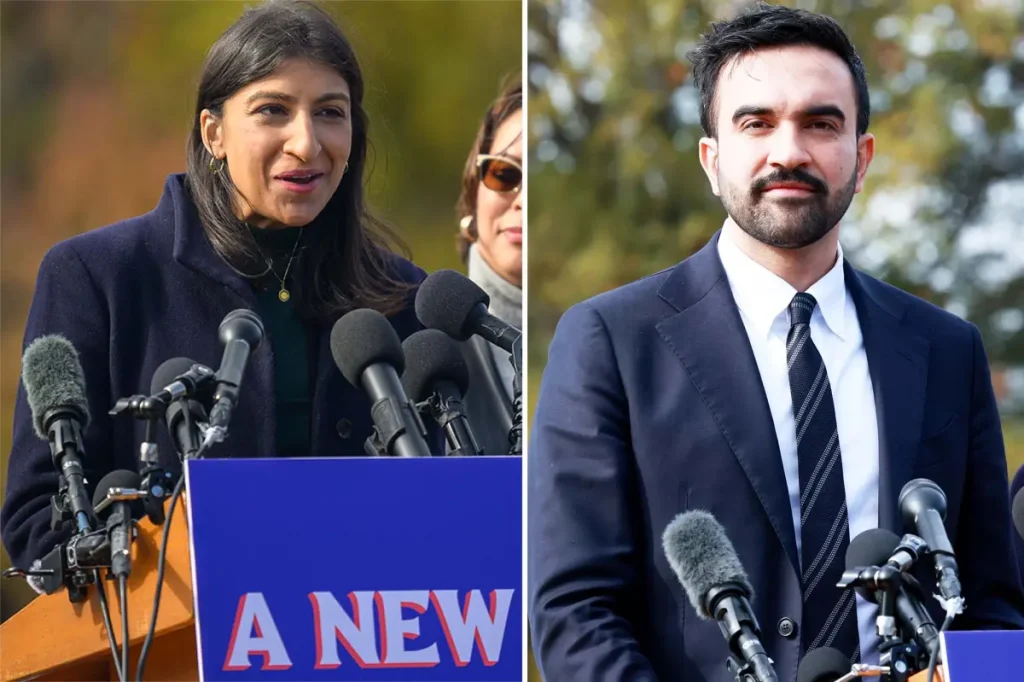Mamdani’s Transition Team Explores Expanded Mayoral Powers
Lina Khan, a key figure on Mayor-elect Zohran Mamdani’s transition team, has sparked conversation with her recent comments about exploring the full extent of mayoral authority in New York City. Speaking on Pod Save America, Khan—who previously served as President Biden’s Federal Trade Commission chair—revealed she intends to conduct “a full accounting of all of the laws and authorities that the mayor can unilaterally deploy.” This approach, drawing from her experience at the FTC where she discovered many unused regulatory powers, suggests Mamdani may pursue creative pathways to implement his progressive agenda without relying solely on traditional legislative channels. Khan’s focus appears to be identifying existing but dormant legal mechanisms that could help deliver on Mamdani’s campaign promises without requiring new approvals from the City Council or state government.
The prospect of Mamdani leveraging expanded mayoral powers has generated mixed reactions across the political spectrum. Some critics, including billionaire hedge-fund manager Dan Loeb, have expressed alarm, sarcastically commenting on social media that Khan would be perfect for “crafting Soviet style centralized control” and “destroying the economy.” Political consultant Ken Frydman similarly suggested that Mamdani’s economic approach would follow socialist principles of taxing wealth and controlling production means. These reactions highlight the ideological divide surrounding Mamdani’s victory, with business interests particularly concerned about how his administration might reshape New York City’s economic landscape. The transition team’s exploration of unilateral mayoral authorities has intensified these concerns among those already skeptical of Mamdani’s democratic socialist platform.
Mamdani faces significant practical challenges in fulfilling his ambitious campaign promises, which include universal childcare, rent freezes, and increased taxation on wealthy New Yorkers. Many of these proposals traditionally require approval from either the City Council or state government in Albany, with Governor Kathy Hochul already expressing reservations about fully embracing such progressive policies. Khan’s focus on identifying mayoral powers that don’t require legislative approval suggests a strategic recognition of these potential roadblocks. Bloomberg has reported that Khan is particularly interested in using existing laws to address algorithmic price discrimination, surveillance pricing, and junk fees—all issues that affect affordability in the city. This approach may allow Mamdani to deliver meaningful economic changes for New Yorkers despite potential resistance from other governmental bodies.
The Department of Consumer and Worker Protection appears to be one agency Khan believes could be leveraged more effectively under Mamdani’s direction. Reports indicate she’s exploring how this department might check the power of technology companies, similar to her regulatory approach at the FTC. This focus on consumer protection could provide a mechanism for implementing parts of Mamdani’s affordability agenda without requiring new legislation. The emphasis on existing but underutilized legal frameworks represents a pragmatic approach to governance that acknowledges the political realities Mamdani faces as a democratic socialist mayor in a complex governmental system. While his campaign energized progressive voters with bold policy proposals, the transition team seems to be crafting a governance strategy that balances idealism with practical implementation pathways.
Despite concerns from some quarters about radical changes, Mamdani has publicly emphasized his commitment to representing all New Yorkers, not just those who share his progressive vision. His transition team selections have included many veteran public servants who previously worked in Bill de Blasio’s administration, suggesting a desire to combine fresh perspectives with institutional knowledge. This staffing approach indicates Mamdani recognizes the value of governmental experience in navigating New York City’s complex bureaucracy. However, questions remain about how he plans to address critical issues like housing development, where he has been relatively quiet about specific implementation strategies. The balance between innovative uses of mayoral authority and traditional consensus-building will likely define the success of his early administration.
Interestingly, Khan herself has garnered support from unexpected quarters, including conservatives like former Trump strategist Steve Bannon, who appreciated her efforts to challenge big tech’s consolidation of power. This cross-ideological appreciation for Khan’s regulatory approach highlights how concerns about corporate power can sometimes transcend traditional political divides. As Mamdani’s transition progresses, the administration’s approach to using mayoral authority will be closely watched by supporters hoping for meaningful progressive change and critics concerned about economic disruption. The exploration of unilateral mayoral powers represents both an innovative approach to governance and a practical response to the political challenges of implementing ambitious policy changes in New York City’s complex governmental environment. Ultimately, Mamdani’s success may depend on finding the right balance between boldness and pragmatism as he seeks to deliver on his vision of a more affordable and equitable city.










